Search
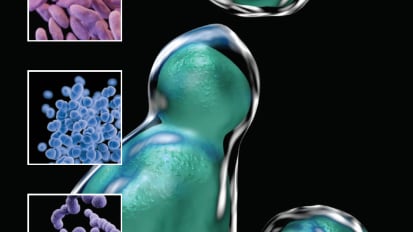 Document
Document
UCSF Center for Next-Gen Precision Diagnostics
UCSF was the first in the world to provide metagenomic next-generation sequencing (mNGS) as a clinical test for diagnosis of neurological infections. News
News
One Million Dollar Gift Advances Patient Recovery Research with Groundbreaking Digital Tools
Jeannie Bailey, PhD, director of the Digital Orthopaedic Biomechanics Lab, and Bobby Tay, MD, chief of the UCSF Orthopaedic Spine Service, have been awarded a $1 million gift to support the development of digital tools designed to track and predict biomechanical recovery following surgery.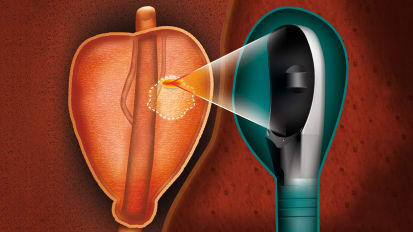 News
News
Focal High-Intensity Focused Ultrasound Ablation for Intermediate-Risk Prostate Cancer
The urologic surgical oncology team has performed an average of five focal HIFU procedures a month since the device was installed last year, offering patients a new minimally invasive treatment option. Video
Video
Get Current on COVID: Case Trends, Flu Season Strategies and Mask Facts
Pulmonologist Brian Block, MD, provides an analysis that clarifies risk factors, in terms of both patient and hospital status. He also discusses how to manage coming flu-related challenges and offers evidence on masking efficacy for both disease spread and severity. Video
Video
Advances (and Uncertainties) in Oncology: Current and Future Roles of Antibody Drug Conjugates
Focusing on common bladder, lung and breast cancers, three UCSF oncologists describe how antibody drug conjugates (ADCs) are changing the treatment landscape, especially for refractory cases Document
Document
CAR-T Cell Therapy Treatment and Research
UCSF is a leader in the newest forms of cellular immunotherapy, which have been shown to be particularly effective in the treatment of B-cell non-Hodgkin lymphoma (NHL) and B-cell acute lymphoblastic leukemia (B-ALL). News
News
Lauren Shapiro, MD, MS Secures Research Funding to Tackle Spanish-Speaking Patient Care Disparities
UCSF Department of Orthopaedic Surgery is pleased to announce that Lauren Shapiro, MD MS, an orthopaedic hand surgeon and medical researcher, has been awarded a prestigious K23 grant. Video
Video
Ross Procedure for Aortic Valve Disease: Why It's the Superior Option in Younger Patients
Cardiac surgeon Marko T. Boskovski, MD, MHS, MPH, provides compelling data on the ultimate failure of traditional valve replacements to support the lifespan of physically active non-elderly adults and describes the value of the Ross procedure. News
News
ER Visit Leads to Moyamoya Disease Diagnosis and Personalized Treatment Plan: UCSF Case Study
A 47-year-old woman came to the UCSF emergency department with acute slurred speech along with left-sided facial droop and left-sided numbness, suggesting a stroke. Vessel imaging showed bilateral obstructive arteriopathy, an indication of moyamoya disease. News
News
Long-term Marijuana Smoking Can Impair Blood Vessel Function
It’s been known for many years that people who smoke tobacco have poor blood vessel function. Now, a team of researchers at UC San Francisco has shown for the first that people who smoke marijuana have the same problem.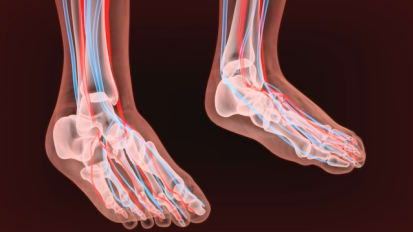 Video
Video
Limb Preservation for Patients with Diabetic Foot Ulcers
Michael S. Conte, MD, provides an overview of the various noncardiac and extracranial blood vessel conditions treated by the Division of Vascular & Endovascular Surgery. News
News
UCSF Health Performs 150th Robotic Focal HIFU Procedure
UCSF is West Coast leader for the innovative, minimally invasive treatment for prostate cancer patients. News
News
Using AI to Improve Detection of Rare Diseases
Acute hepatic porphyria (AHP) is a rare genetic disease with symptoms that overlap with many other conditions, making it extremely challenging to diagnose. Its symptoms mostly affect women with severe, sometimes life-threatening attacks that include abdominal pain, nausea, vomiting, limb weakness and anxiety. News
News
New Method for Rapid, Intraoperative Detection of Residual Tumor Cells Can Vastly Improve Patient Outcomes
It is now possible to detect residual tumor cells during surgery within minutes, a groundbreaking advancement in the surgical treatment of tumors.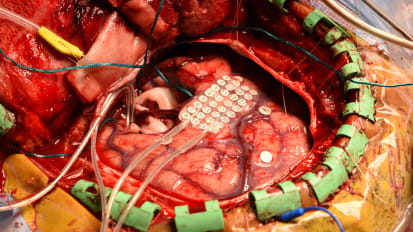 News
News
Cerebral Cavernous Malformation Treatments Relieve Disparate Symptoms
Two patients with severe yet different neurological symptoms were referred to UCSF for emergent neurosurgical evaluation. Both were found to have previously undiagnosed cerebral cavernous malformations (CCMs), but each patient’s treatment was unique.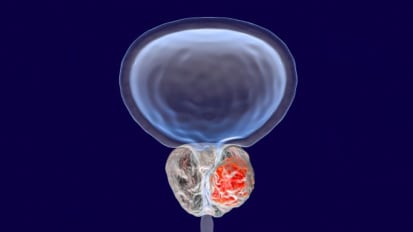 News
News
Radioligand Therapy Plus Pembrolizumab May Benefit Patients with Advanced Prostate Cancer
Immune checkpoint inhibitors have demonstrated limited efficacy in treating prostate cancer. Efforts to improve outcomes with combination therapies have mostly failed to demonstrate improvements compared to other types of cancer.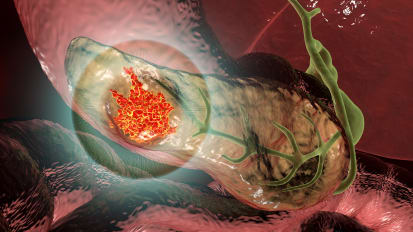 News
News
Research Reveals Mechanisms at Work in Progression of Pancreatic Cysts to Pancreatic Cancer
Tumor Immune Microenvironments May Provide Clues to Future Therapies News
News
Treating Severe Depression with On-Demand Brain Stimulation
UCSF Health physicians have successfully treated a patient with severe depression by tapping into the specific brain circuit involved in depressive brain patterns and resetting them using the equivalent of a pacemaker for the brain. News
News
Autoantibody for Acquired Lipodystrophy Identified, Bringing Hope for Therapeutics
UCSF investigators have found an autoantibody biomarker for acquired lipodystrophy, paving the way for novel treatment options for this complex condition, which causes adipose tissue loss and metabolic complications. News
News
UCSF Prostate Cancer Program Awarded SPORE Grant by National Cancer Institute
The UCSF Prostate Cancer Program of the Helen Diller Family Comprehensive Cancer Center is the recipient of the National Cancer Institute’s (NCI) Specialized Programs of Research Excellence (SPORE) grant for prostate cancer. News
News
How a Cutting-Edge Genetic Test Helps Ill Newborns, Pregnant Moms
UCSF is first in Northern California to offer rapid test in-house for faster and more accurate diagnosis of rare genetic conditions. Video
Video
Advances in Obesity Medicine: Better Bariatric Surgery Options and Outcomes
With obesity affecting 40% of the U.S. population, bariatric surgeon Jonathan Carter, MD, reviews the devastating health effects of excess body fat and contends that clinicians can no longer sidestep difficult conversations about weight management. News
News
Telehealth is as Safe as a Visit to the Clinic for Abortion Pills
Researchers analyzed data from more than 6,000 patients who obtained abortion pills from virtual clinics in 20 states and Washington D.C. between April of 2021 and January of 2022. They found there were no serious adverse events 99.8% of the time, and that abortions did not require follow-up care 98% of the time.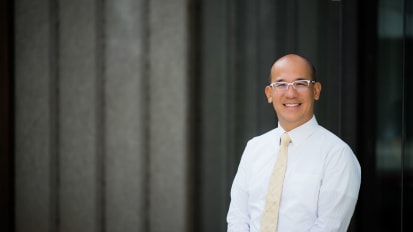 News
News
Prominent Orthopaedic Surgeon and Researcher to Lead UCSF Orthopaedics Program
C. Benjamin Ma, MD, a highly regarded orthopaedic surgeon and advanced imaging researcher, has been appointed as chair of the UCSF Department of Orthopaedic Surgery. Ma assumed his new role on January 1, 2024.

